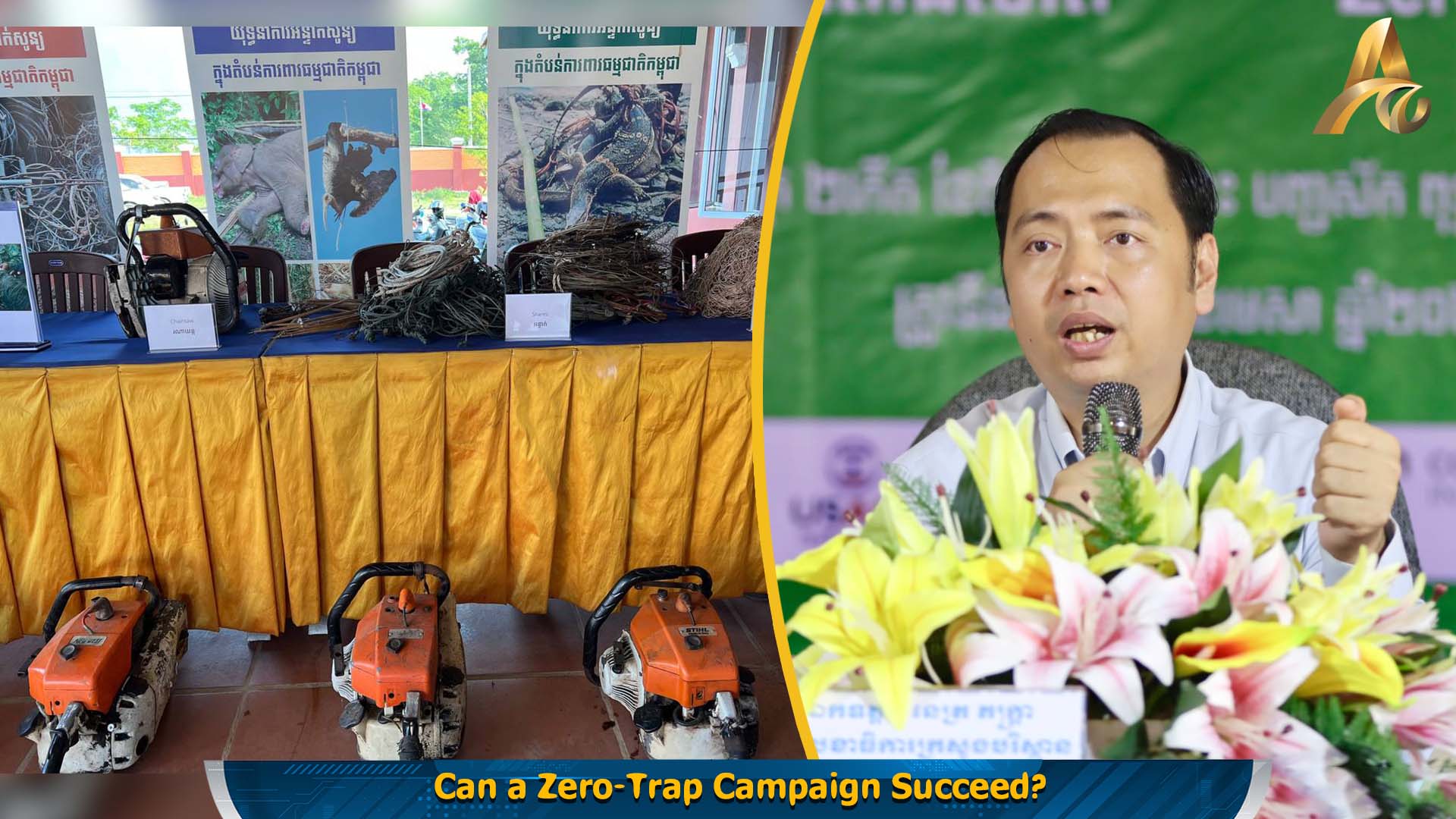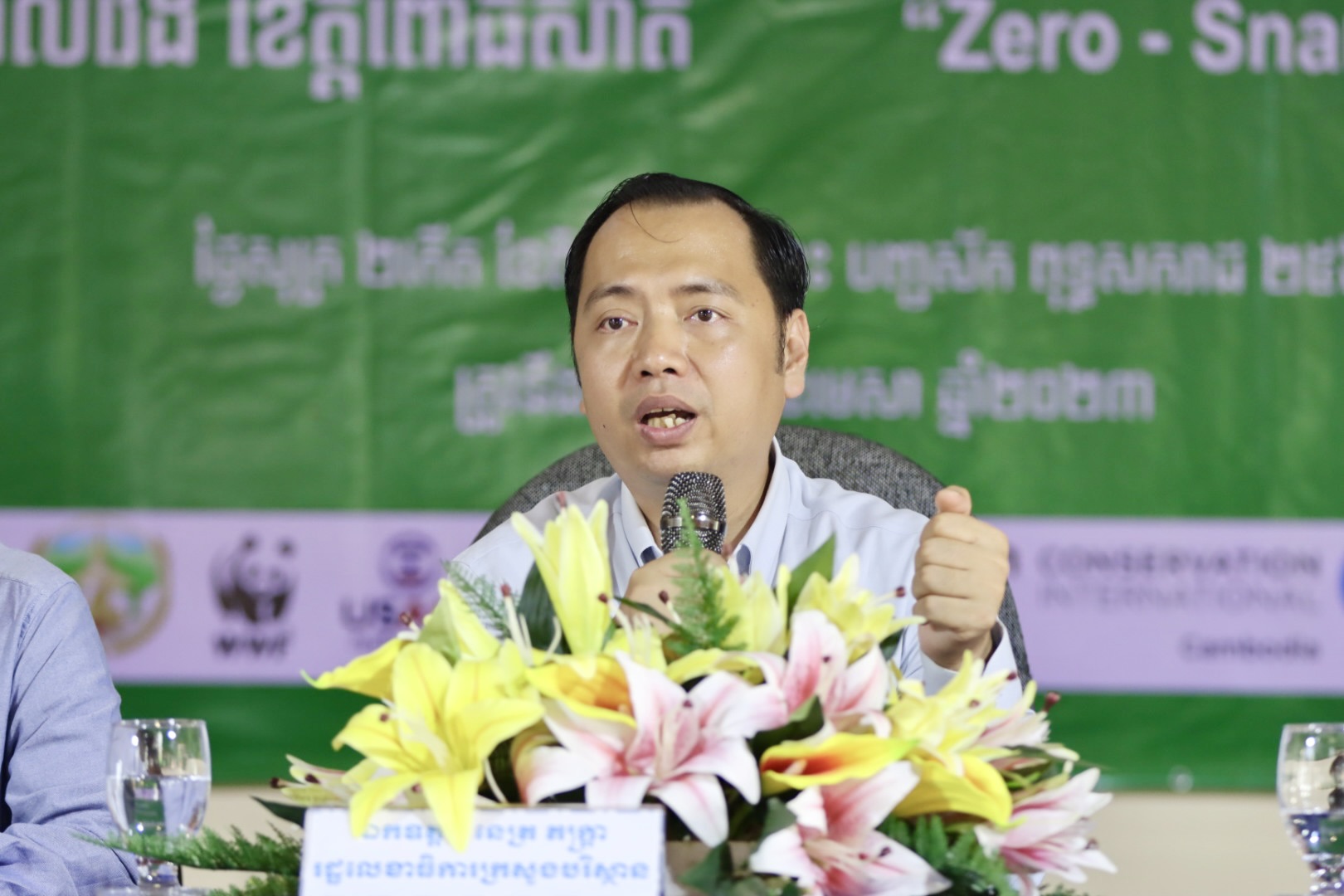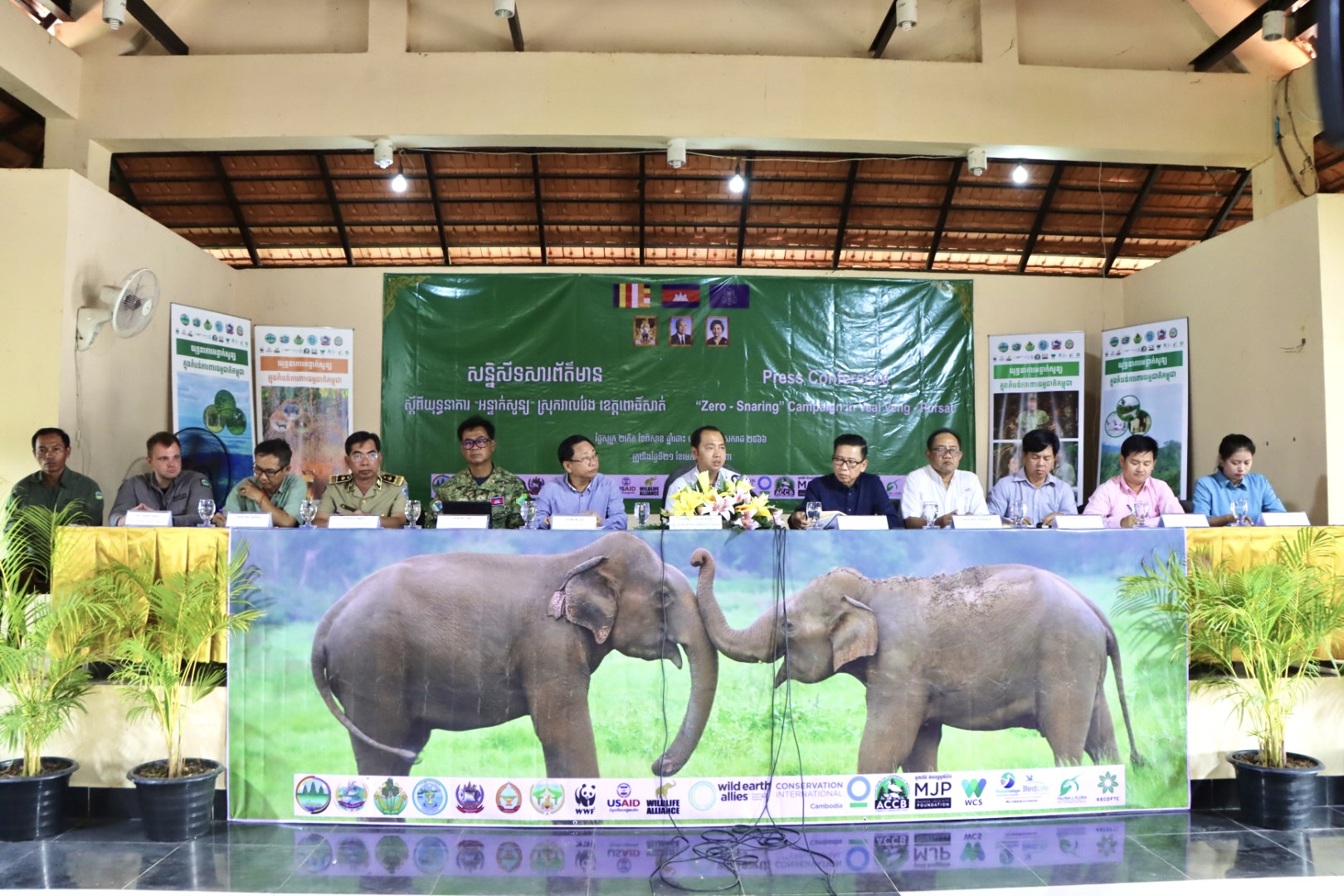PURSAT: The Ministry of Environment has partnered with wildlife conservation organizations and relevant authorities to enact a “Zero-Trap Campaign”, targeting the main players in the bush meat market. Phase two of the campaign is now underway in the Pursat province.
The first phase of the Zero-Trap campaign started in March 2022 and addressed issues in Kratie, Stung Treng, Ratanakiri, Mondulkiri, Preah Vihear and Kampong Thom provinces. The second phase of the Zero-Trap campaign began last month and intends to expand its efforts to Pursat, Kampong Speu, Siem Reap, Battambang and Pailin provinces.
Secretary of State and spokesman for the Ministry of Environment, Neth Pheaktra, emphasized that the Zero-Trap Campaign was aimed at saving wildlife in Cambodia by eliminating trapping and hunting. In particular, they are warning hunters against trapping wildlife and selling bush meat. In addition to providing alternative means of income, they are also raising awareness by educating the public about the risks of eating wild meat and the importance of wildlife conservation.
According to Neth Pheaktra, traps are responsible for the loss and decline of endangered animals. John Willis, Country Director for the Wildlife Alliance, added that trapping not only destroys wildlife, but also threatens carbon credit revenue and hurts the livelihoods of those who depend on nature-based tourism.
WWF Cambodia Director Seng Teak confirmed that before the first phase of the Zero-Trap Campaign, the Ministry and partner organizations removed a total of more than 60,000 traps in 2021, but by the end of the campaign in 2022, they only found 30,000.
Neth Pheaktra said that although the number of traps had decreased, it was not yet possible to determine when traps would be completely eliminated in conservation areas. "We are still struggling to move forward towards zero traps in the natural resource protection zone," he said. However, he reaffirmed the Ministry of Environment’s commitment to work with partner organizations towards the goal.
He also praised the success of having 71 restaurants in the region commit to not selling bush meat through the campaign’s efforts. He stressed the need for communities in the capital and the provinces to work together alongside the government and wildlife organizations to educate and guide the public in changing their attitude towards eating bush meat and hunting and to participate in wildlife conservation in Cambodia.
"Wildlife can live without humans, but humans need nature and biodiversity as a basis for survival. In order to keep people alive, we have to take care of nature and biodiversity," he said.
Seng Teak added that in order to reach their goal of eliminating traps, serious consequences must be enforced for those who kill, trade, and trap wildlife. In particular, he called for amendments of the Law on Protected Areas to punish those who set traps, even if they are not used for hunting. "This is important; we need to review the article related to the penalty," he said.



























